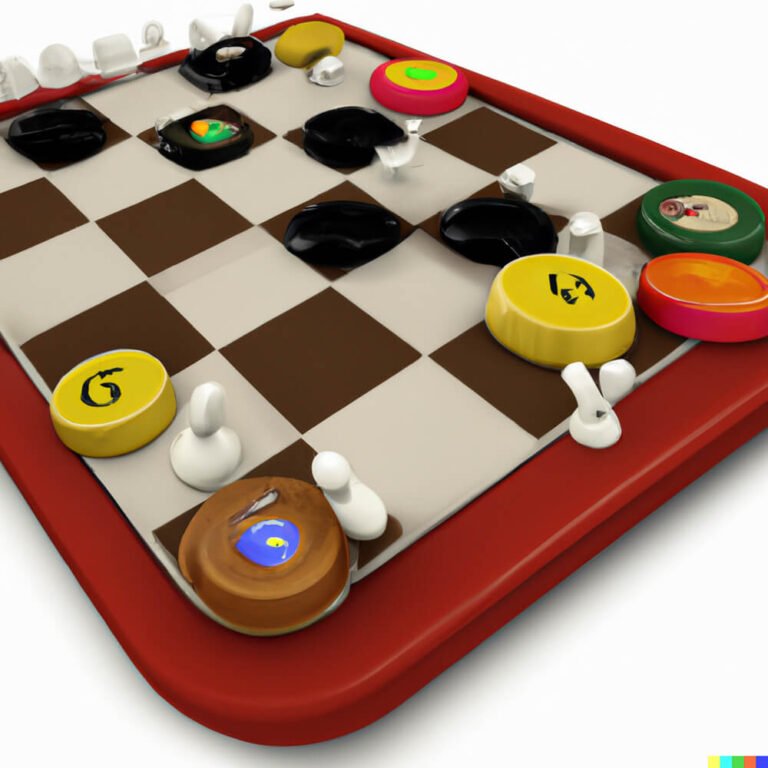Are you looking to dominate the Pandemic board game and emerge victorious every time? Look no further than this Pandemic Board Game Strategy Guide. Whether you’re a beginner or an experienced player, this guide will provide you with essential strategies and tactics to master the game and lead your team to success. From understanding the game mechanics to adapting to different difficulty levels, this comprehensive guide covers everything you need to know to become a Pandemic pro.
Pandemic is a cooperative board game that simulates the outbreak of deadly diseases across the globe. Players take on different roles as members of a disease control team, working together to treat infections, discover cures, and prevent outbreaks. In this introduction, we will explore the fundamentals of the game, from its basic premise to its overarching objective – saving humanity from devastating pandemics.
Understanding the game mechanics is key to developing effective strategies for overcoming the challenges presented in Pandemic. From managing resources to prioritizing actions, players must work together strategically to ensure their success. This section will delve into the core mechanics of the game and provide insight into how they shape gameplay and decision-making. Whether you’re new to Pandemic or looking to sharpen your skills, mastering these fundamental aspects of the game is crucial for achieving victory.
Understanding the Game Mechanics
The Pandemic board game is a cooperative game where players work together to stop the spread of deadly diseases across the globe. The game can be played by 2-4 players and typically takes around 45 minutes to an hour to complete. To win the game, players must work as a team to discover cures for four different diseases before they get out of control and cause a global outbreak.
One of the key elements of Pandemic is understanding the role of each player and their unique abilities. There are different roles such as Medic, Dispatcher, Scientist, Researcher, and more, each with their own special abilities that can greatly impact gameplay. For example, the Medic’s ability to remove all cubes from a city at once can be invaluable in controlling outbreaks.
Understanding how diseases spread and mutate is also crucial in Pandemic. The game features an infection deck that determines which cities are affected by diseases each turn. Players must anticipate and respond to these infections while also managing their actions efficiently. This involves balancing containment efforts with finding cures and preventing outbreaks.
Additionally, it’s important for players to grasp the concept of outbreaks and chain reactions in Pandemic. When a city becomes dangerously infected or “outbreaks,” it further spreads the disease to adjacent cities-creating a domino effect that can quickly spiral out of control. Understanding these mechanics is essential for creating effective strategies to combat the pandemic and emerge victorious.
| Aspect | Description |
|---|---|
| Player Roles | Different roles such as Medic, Dispatcher, Scientist, etc. with unique abilities. |
| Disease Spread | How diseases spread through the infection deck and create chain reactions during outbreaks. |
| Action Management | Balancing containment efforts with finding cures and preventing outbreaks effectively. |
Essential Strategies for Pandemic Success
When playing Pandemic, it’s vital to have a solid strategy in place to increase your chances of success. Below are some essential strategies to consider when playing this popular board game:
1. Prioritize outbreaks and epidemics: Focus on containing outbreaks and preventing epidemics as a top priority. Outbreaks can quickly spiral out of control if not managed effectively, so make sure to allocate your resources accordingly.
2. Efficient use of player roles: Each role in Pandemic comes with its own unique abilities and strengths. Utilize these roles efficiently by assigning tasks based on each player’s strengths and the current state of the game.
3. Strategic card management: Carefully manage your player cards and use them strategically. Make sure to communicate with your team members about which cards are needed for treating diseases or for finding a cure.
4. Balance between treating and curing: Finding the right balance between treating existing diseases and working towards finding cures is crucial. Prioritize finding cures for diseases while also managing the current outbreaks.
5. Adapt to evolving situations: Keep an eye on how the game unfolds and be ready to adapt your strategy accordingly. Flexibility is key in Pandemic, as unforeseen events can dramatically change the course of the game.
Being mindful of these essential strategies will significantly improve your chances of winning at Pandemic, no matter what difficulties you face during gameplay.
Remember that mastering Pandemic takes time, practice, and a willingness to learn from both victories and defeats alike. With these essential strategies in mind, players can approach each game with confidence, knowing they have a solid plan for success.
Team Coordination and Communication
When playing Pandemic, one of the most critical elements for success is effective team coordination and communication. Without these two factors, even the best pandemic board game strategy guide will fall short. Here are some essential tips for ensuring that your team stays on track and works together seamlessly:
- Assign roles: Clearly define each player’s role based on their character’s special abilities. Utilize these unique skills to tackle specific challenges within the game.
- Share information: Constantly communicate with your teammates about the state of different cities, available player cards, and potential strategies. Keeping everyone in the loop allows for better decision making.
- Plan together: Instead of making individual moves in isolation, make sure to plan each turn as a team. Discuss options before making any decisions to ensure that everyone is aligned with the chosen course of action.
Remember that in a pandemic board game strategy guide, team coordination and communication should always be emphasized as crucial components for success. By working together effectively, you can increase your chances of overcoming the various challenges presented by the game.
Overall, successful team coordination and communication are essential for mastering Pandemic. By following these tips and strategies, players can improve their teamwork and enhance their overall gameplay experience. Whether playing with friends or family members, effective communication can mean the difference between victory and defeat in this cooperative board game.
Role of Luck and Probability in Pandemic
When it comes to playing Pandemic, luck and probability play a significant role in determining the outcome of the game. Whether you are a seasoned player or new to the game, understanding how luck and probability factor into your gameplay can greatly improve your chances of success in containing the spread of diseases.
Card Drawing Strategy
One of the key elements of luck in Pandemic is the drawing of player cards. The distribution of city cards and epidemic cards drawn from the player deck can heavily influence the progression of the game. It is essential to have a good strategy for managing these cards and maximizing their potential to your advantage.
Dealing With Outbreaks
The occurrence of outbreaks in Pandemic is also influenced by probability. Understanding the likelihood of outbreaks happening in certain areas can help players anticipate and prepare for potential outbreaks proactively. Prioritizing efforts to prevent outbreaks in high-risk areas based on probability can significantly impact the overall outcome of the game.
Probability-Based Planning
Utilizing probabilities in planning your moves and strategies can be a game-changer in Pandemic. Assessing the likelihood of disease outbreaks, successfully treating infections, or finding cures can guide your decisions on where to allocate resources, which cities to prioritize, and when to use specific event cards strategically.
Advanced Tactics for Experienced Players
Optimizing Role Abilities
Experienced players of Pandemic understand the importance and potential of each role in the game. Each role comes with unique abilities that can be used to their full advantage.
Understanding how to optimize these abilities based on the current state of the game and the team’s overall strategy is crucial for success. For example, a dispatcher’s ability to move other player pawns can be used strategically to maximize movement efficiency, while a researcher’s ability to share knowledge allows for quicker cures.
Strategic Card Management
Experienced players know that card management is a critical aspect of Pandemic. Knowing when to use event cards, such as “One Quiet Night” or “Resilient Population,” can be game-changing. Additionally, understanding when to hold onto or discard certain city cards in order to collect needed sets for cures is essential. Discerning which cards are vital for immediate use and which ones can wait until later rounds is a key strategic decision.
Efficient Use of Actions
As an experienced player, it’s important to understand how to optimize actions each turn. This involves knowing when and where to move, when to treat diseases, when to build research stations, and when to share information with teammates. Prioritizing actions based on immediate threats on the board and long-term objectives is crucial. Utilizing actions efficiently ensures that every turn contributes significantly towards the team’s overall goal of finding cures and preventing outbreaks.
By mastering these advanced tactics, experienced players can elevate their gameplay and contribute more effectively towards achieving victory in Pandemic. As with any strategic board game, constant practice, experience, and adaptation are essential in honing one’s skills in Pandemic.
Tips for Pandemic Solo Play
Solo play is a popular way to enjoy the Pandemic board game, allowing players to test their skills and strategies without relying on team members. The game, which simulates a global outbreak of diseases, presents unique challenges for solo players. In this section, we will explore some tips to help you navigate the game as a solo player and increase your chances of success.
One key strategy for solo play in Pandemic is to focus on building a well-balanced team of characters. Each character in the game has unique abilities that can be strategically leveraged to combat the spread of diseases.
As a solo player, it is important to select characters that complement each other and cover a range of essential abilities such as treating diseases, moving efficiently around the board, and finding cures. By carefully selecting and utilizing your team’s abilities, you can maximize your chances of containing outbreaks and finding cures before it’s too late.
Another important tip for solo play in Pandemic is to prioritize communication between the different roles you control. While playing multiple roles can be challenging, effective communication can help you streamline your decision-making process and make more strategic moves.
By consistently evaluating the strengths and weaknesses of each role you control and coordinating their actions effectively, you can ensure that no critical tasks are neglected, such as treating outbreaks or discovering cures. This level of coordination will also help mitigate the potential downsides of being spread thin as a solo player in the game.
Furthermore, as a solo player in Pandemic, it’s crucial to remain adaptable and flexible in your approach. The game often presents unpredictable challenges that require quick thinking and strategic adjustments. By staying open-minded about different tactics and strategies throughout the game, you’ll be better equipped to handle unexpected obstacles like rapidly spreading diseases or sudden outbreaks. Adapting quickly will not only increase your chances of success but also provide an engaging gameplay experience even when played alone.
In summary, successful solo play in Pandemic requires careful team selection, effective communication between roles, and flexibility in approach when facing unexpected challenges. By keeping these tips in mind while playing solo games, players can enhance their experience with the game even when navigating its challenges alone.
Adapting to Different Difficulty Levels
One of the aspects that makes Pandemic such an enduring and engaging game is its scalability across difficulty levels. The game is designed to accommodate players of all skill levels, from newcomers to seasoned veterans. Adapting your strategies and approach to the game based on the chosen difficulty level can significantly enhance your chances of success and allow for a more tailored gaming experience.
At the introductory difficulty level, players will find the game more forgiving and approachable. This can be an excellent starting point for those who are new to Pandemic or board games in general. As players progress through higher difficulty levels, they will encounter additional challenges, including faster spreading diseases, limited event cards, and more strategic considerations when it comes to resource management and decision-making.
When playing at higher difficulty levels, it becomes crucial for players to prioritize which outbreaks to contain first and utilize their role-specific abilities strategically. Furthermore, coordinating with team members becomes even more vital as the consequences of a misstep are amplified. Understanding these differences across difficulty levels and adapting your gameplay accordingly is essential for success in Pandemic.
| Difficulty Level | Description |
|---|---|
| Introductory Level | More forgiving and approachable for beginners |
| Advanced Level | Faster spreading diseases, limited event cards, and increased strategic considerations |
Conclusion and Final Thoughts on Mastering Pandemic
In conclusion, mastering the Pandemic board game requires a combination of understanding the game mechanics, implementing essential strategies, effective team coordination and communication, and a good grasp of luck and probability. As discussed throughout this strategy guide, players must also be willing to adapt and learn advanced tactics in order to achieve success in the game.
One key takeaway from this article is the importance of teamwork in Pandemic. The game truly shines when players work together efficiently and communicate effectively to combat the global spread of diseases. Whether playing with friends or attempting the game solo, coordination and collaboration are crucial elements for achieving victory.
Additionally, it’s important for players to remember that mastering Pandemic may take time and practice. As with any game, developing a deep understanding of the strategies and mechanics will ultimately lead to more successful outcomes. With dedication and perseverance, players can improve their skills and enjoy an even more fulfilling experience with this popular board game.
For those looking to challenge themselves further, exploring different difficulty levels can provide new opportunities for growth as a Pandemic player. With these final thoughts in mind, aspiring Pandemic enthusiasts can continue honing their skills in pursuit of mastery.
Frequently Asked Questions
How Do You Win the Pandemic Board Game?
Winning the Pandemic board game requires strategic cooperation and planning with your fellow players. You must work together to contain and cure the different diseases spreading across the world before it’s too late.
Is Pandemic Difficult Board Game?
Pandemic can be a challenging board game, especially for new players. Understanding the game mechanics, coordinating with teammates, and managing limited resources can make it difficult, but also rewarding.
Which Pandemic Board Game to Start With?
If you’re new to the Pandemic series, a good option to start with is the original Pandemic game. It provides a solid foundation of the game mechanics and teamwork required to play, making it easier to grasp before moving on to expansion packs or spin-off versions.

I love playing all kinds of games – from classics like Monopoly to modern favourites like Ticket to Ride.
I created this blog as a way to share my love of board games with others, and provide information on the latest releases and news in the industry.





